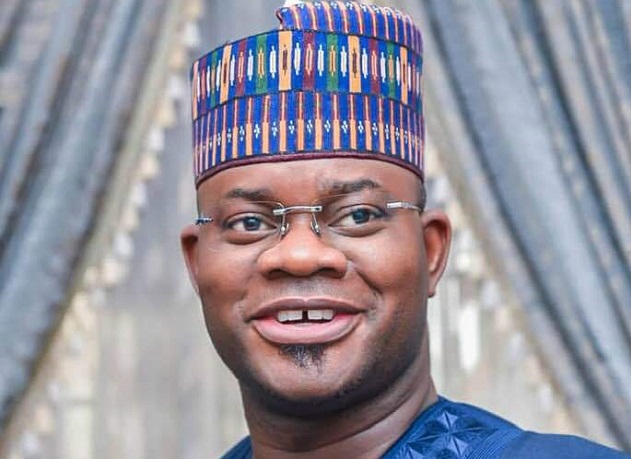The former governor of Kogi State, Yahaya Bello, has finally agreed to submit himself to the Federal High Court in Abuja for arraignment on June 13 in the corruption charges against him.
Bello’s lead counsel, Abdulwahab Mohammed, a Senior Advocate of Nigeria (SAN), gave the undertaking to Justice Emeka Nwite on Friday shortly after the request for suspension of trial by the defendant was rejected by the court.
The senior lawyer claimed that the former governor was not afraid of arraignment but of the safety of his life in the hands of the Economic and Financial Crimes Commission (EFCC) in Abuja.
He said the life of his client had been under consistent threats in Abuja; hence his decision to go underground for safety.
- Court restrains pro-Wike lawmakers from parading selves as Assembly members
- Obaseki speaks on court case against Oba of Benin
The decision followed assurances from the court, presided by Justice Nwite, who noted that the EFCC as a law-abiding body would not do anything against the provisions of the law.
Explaining that Bello would not be first nor the last former governor to be so invited by the EFCC, the judge added that the invitation was based on allegations that had not been proven in court, which made the ex-governor an innocent person in the eyes of the law.
Reacting, Bello’s lawyer thanked the judge for assuring that the anti-graft agency would not do anything untoward against him, saying, “All my client needs is just an assurance for the safety of his life, which has been under threat for some time in Abuja.”
The lawyer requested for four weeks to bring his client before the court to take his plea and not to the EFCC office.
Based on the undertaking and no opposition from the EFCC counsel, Rotimi Oyedepo (SAN), Justice Nwite fixed June 13 for Bello to appear in court for his plea to be taken.
Earlier, Justice Nwite had ruled that Bello must appear in court, even if his arrest warrant was obtained illegally.
The ruling followed an application by Bello’s counsel, Adeola Adedipe (SAN), asking the court to set aside the arrest warrant of April 17 issued by the court against his client.
He argued that the warrant had become unnecessary as the lead counsel, Abdulwahab Mohammed, had accepted the service of the charge on behalf of the governor.
He argued that the arrest warrant order, having been made before the charge, ought to be set aside by the court on its own accord, without any request by the parties involved.
The senior lawyer argued that contrary to Kei Pinheiro (SAN), the prosecution counsel’s submission that the ex-governor must be in court first before any application could be entertained, being a criminal case, the anti-graft agency also made an application on April 18 after the warrant arrest was issued to the EFCC on April 17 and that the court granted it.
The lawyer submitted that the arrest warrant was issued in favour of the EFCC by the court in violation of fair hearing for their client.
According to him, the complainant made an application for substituted service on April 18 after the arrest warrant had been issued on April 17, and today, it was granted.
The prosecution counsel objected to the submissions.

 Join Daily Trust WhatsApp Community For Quick Access To News and Happenings Around You.
Join Daily Trust WhatsApp Community For Quick Access To News and Happenings Around You.


